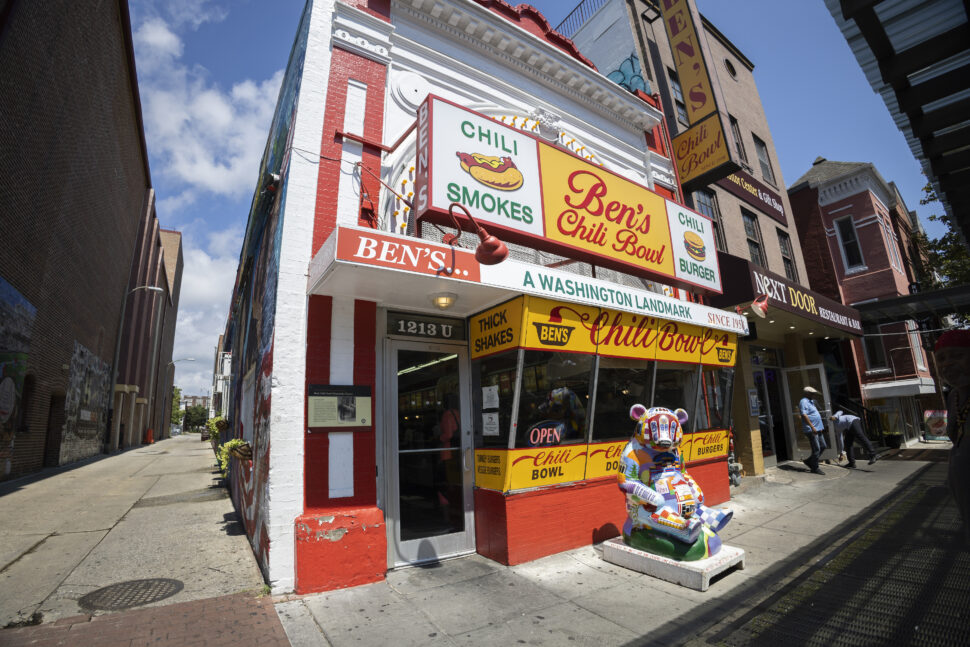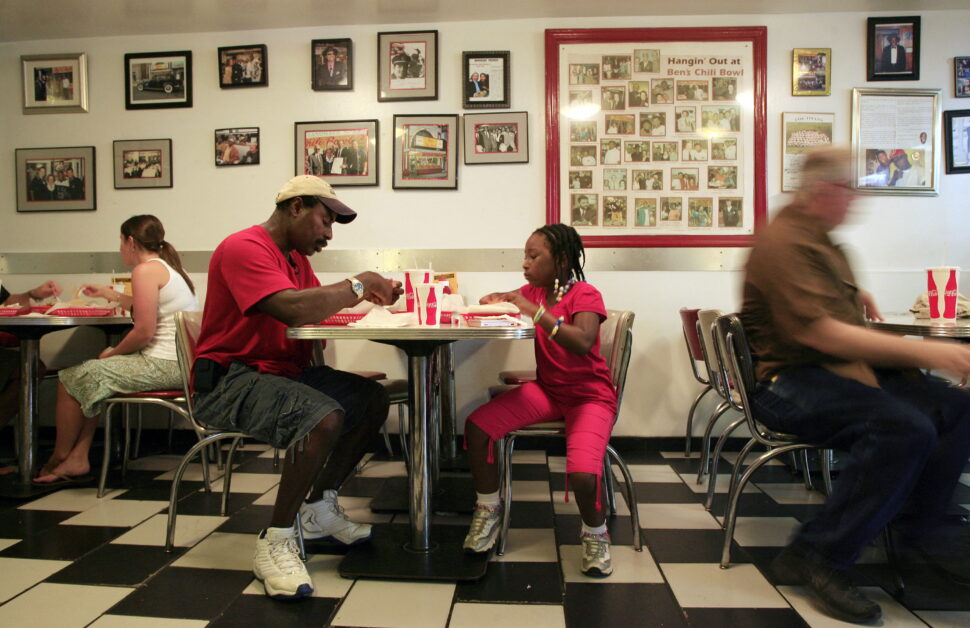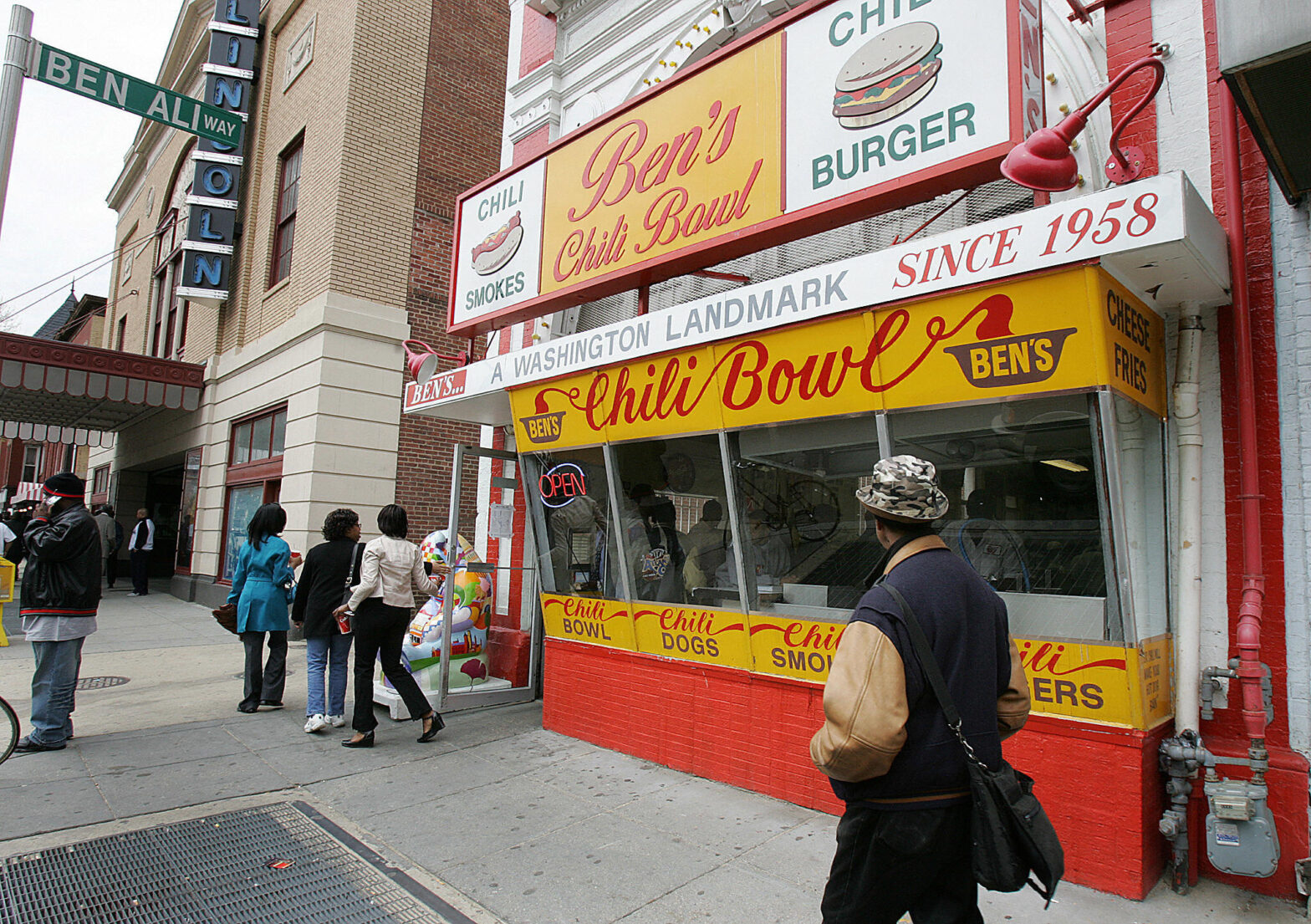As a native of the DMV (Washington D.C., Maryland, and Virginia), it’s easy to overlook the profound impact of Ben’s Chili Bowl on our city and its history. Despite its status as a popular tourist attraction, we often forget the influential role this business has played in Washington, DC and its involvement in world-defining moments like the Civil Rights Movement.
Nestled in the heart of DC, Ben’s Chili Bowl stands as more than just a culinary landmark. The establishment represents a testament to the resilience and community ingrained in the city’s history. In 1958, Virginia Ali and her husband Ben Ali, an immigrant from Trinidad, founded the iconic eatery. It emerged on U Street, affectionately dubbed America’s “Black Broadway” for its thriving Black-owned businesses and vibrant entertainment scene back then.
In its heyday, jazz greats, including Duke Ellington, Ella Fitzgerald, and Nat King Cole, graced the stage of U Street’s theaters. The legends often found a moment of relaxation in the welcoming ambiance of Ben’s Chili Bowl after their performances. Over the years, the restaurant became a gathering place for the community, transcending racial and social divides.

Founding Ben’s Chili Bowl
When Virginia Ali reflects on the atmosphere of Washington D.C. during the founding of Ben’s Chili Bowl, she vividly describes a city of segregation yet brimming with vitality within its own African American community. In 1952, the city was divided, with Black residents having their own establishments and cultural hubs. All of the Black businesses were separate from the downtown scene which was dominated by segregation, she explained to Bon Appétit.
But for Virginia and Ben, DC’s vibrant African American community was the perfect backdrop for their venture. Ben’s Chili Bowl quickly became a cherished gathering place where patrons felt a sense of belonging. People from all walks of life could come together over a shared meal.
During the social and cultural changes of the 1960s, historical figures such as Dr. Martin Luther King Jr., Harry Belafonte, and Dick Gregory frequented the restaurant. For Virginia, these encounters provided not only an opportunity to serve them delicious comfort food but also a chance to engage in meaningful conversations about the dreams and aspirations of the Civil Rights Movement.
Soon, uprisings erupted across the country. The Ali family found themselves a pivotal destination during the Civil Rights Movement.
In 1963, amidst the historic March on Washington, Virginia and Ben Ali participated in the momentous event before hurrying back to U Street to reopen Ben’s Chili Bowl. However, the aftermath of Dr. King’s assassination brought a wave of despair and destruction to the neighborhood. Riots erupted, leaving the once-thriving community in ruins. Despite the challenges, Ben’s Chili Bowl stood as a resilient symbol of hope. While many Black businesses had to close down after the riots, Ben’s endured.
Ben’s Remains Standing

As the neighborhood slowly began to rebuild, Ben’s Chili Bowl stood as one of the few surviving Black businesses, alongside historical entities like Industrial Bank and Lee’s Flower Shop.
In recent years, Ben’s has continued to attract a diverse array of clientele. Everyone from presidents and judges to those grappling with addiction and homelessness can come to have a meal. Virginia, now running the restaurant alongside her sons Kamal and Nizam, remains rooted in the hospitality and inclusivity that defines the establishment.
The Ali family’s commitment to their neighborhood is evident in their decision to stay put in U Street. Despite the pressures of gentrification Ben’s Chili Bowl stands as a symbol of hope in a rapidly changing landscape. They are one of the few institutions preserving the Black cultural heritage of “Chocolate City.”
Today, Ben’s Chili Bowl celebrates over six decades of service. In an ever-changing world, Ben’s Chili Bowl remains cherished by locals and visitors alike.
